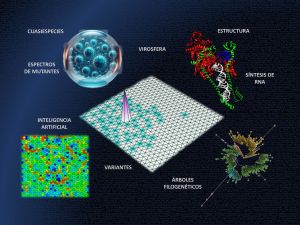El foco se fijó sobre la proteína que permite la multiplicación del virus, llamada polimerasa, y en la proteína responsable de inducir la producción de anticuerpos que pueden proteger frente a enfermedad grave. La investigación ha demostrado que algunas de las mutaciones son capaces de modificar la velocidad con la que se multiplica el virus. Para confirmar este efecto, se purificó la polimerasa del virus y se comprobó que su capacidad de copiar el material genético del virus varía considerablemente entre las polimerasas mutantes que de modo incipiente surgen en los virus de los pacientes. Estas mutaciones hasta ahora habían pasado inadvertidas por su baja proporción en los pacientes infectados.
El estudio ha sido codirigido por Soledad Delgado, Celia Perales, Nuria Verdaguer y Esteban Domingo, en el consorcio participan también investigadores de la Universidad Complutense de Madrid, la Northwestern University de Estados Unidos y la consultora internacional Management Solutions. Su éxito se ha basado en el marcado carácter interdisciplinar de la investigación, en la que se han aunado un amplio abanico de conocimientos que abarcan desde la medicina a la biología estructural y la bioinformática.
Los resultados han puesto de manifiesto que la capacidad de variación de este coronavirus es mucho mayor de lo que se sospechaba, con una rápida proliferación de mutantes de comportamiento distinto. Ello obliga a buscar tratamientos más eficaces, que es uno de los objetivos que tiene planteados actualmente el consorcio.
El trabajo acaba de ser publicado en la revista PNAS de la Academia Nacional de Ciencias de los Estados Unidos.
Firma: CSIC Comunicación / CBM Comunicación
Referencia bibliográfica: S Delgado, P Somovilla, C Ferrer-Orta, B Martínez-González, S Vázquez-Monteagudo, J Muñoz-Flores, ME Soria, C García-Crespo, AI de Avila, A Duran-Pastor, I Gadea, C López-Galíndez, F Morán, R Lorenzo-Redondo, N Verdaguer, C Perales, and E Domingo. (2024). Incipient functional SARS-CoV-2 diversification identified through neural network haplotype maps. Proceedings of the National Academy of Sciences of the United States of America.
DOI: 10.1073/pnas.2317851121 www.pnas.org/doi/10.1073/pnas.2317851121






